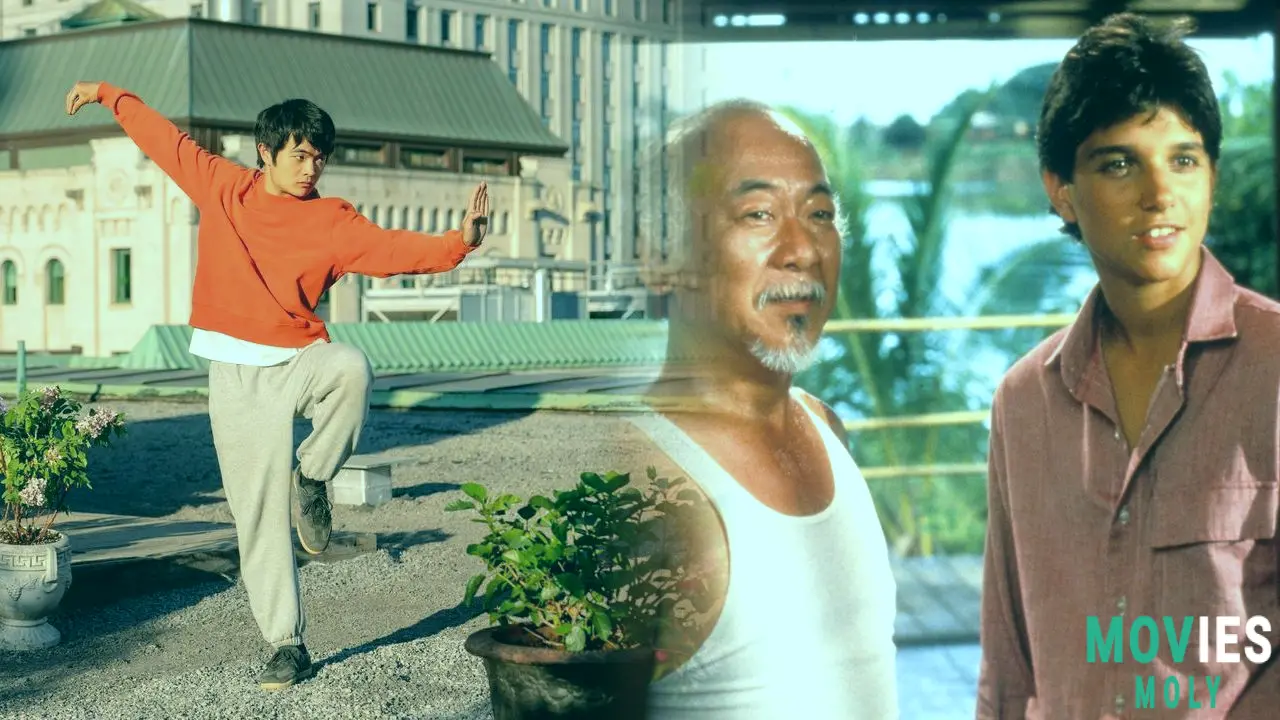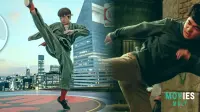If you are anything like me, you probably grew up watching the Karate Kid Movies. Jonathan Entwistle, the director of the new movie Karate Kid: Legends, also did. He knows everyone over 30 remembers Mr. Miyagi and "wax on, wax off." Turning that kind of cultural memory into a new successful movie is a whole different challenge. That is exactly what Entwistle faced with Karate Kid: Legends.
This film is the sixth in the long-running martial arts series. It acts as a kind of soft reboot. It brings in a new main character, Li Fong (Ben Wang). It also brings together original series star Ralph Macchio as Daniel LaRusso and 2010 Karate Kid star Jackie Chan as Mr. Han. Entwistle was ready to get to work and deliver a Karate Kid for a new generation. He did not want to break what people expect from a Karate Kid movie. He still wanted to make a modern film for theaters. He aimed to let audiences enjoy Daniel and Jackie and everything those characters bring, all while fitting into what already existed.
For Entwistle, the main point was finding what makes a Karate Kid movie special. He believes it is about mentorship. He said that mentorship is a very important part of the story. Every part of Karate Kid, in its many forms, has always had some kind of mentorship.
The New Generation Of Karate Kids Meets The Iconic Mentors In A Fresh StoryHow Ben Wang's Li Fong Steps Into The Role Of The New Karate Kid And The Legacy He Joins
Ben Wang plays the new Karate Kid, Li Fong. He is a kung fu student who moves from Beijing to New York City. The film follows a familiar setup. A kid moves to a new city with his widowed mother (Ming-Na Wen). He finds a romantic interest with a pizzeria employee (Sadie Stanley). He also finds a rival, a mean-looking Aramis Knight. And, of course, he finds mentors in Jackie Chan and Ralph Macchio. They both fill the role of Pat Morita’s Mr. Miyagi. All of this leads to a high-stakes karate tournament. It is a story as old as 1984.
Ben Wang was chosen from a pool of 10,000 hopefuls. He is a skilled performer with training in musical theater. He is also informally trained in martial arts. Ralph Macchio called Wang before he came to set. He told him the film is about his character’s journey. Macchio said he brings the legacy of the original films and Mr. Miyagi. Wang brings what he needs to make his character real. Wang found this very freeing. The Li Fong role requires impressive athleticism. It involves flying kicks and upside-down sit-ups.
Wang said his worst injury was slicing the tip of his pinky finger. He joked it sounds bad. However, Jackie Chan recently showed up with a bruised and swollen calf after jumping off a tree. Chan is 71 years old. Wang said the original Karate Kid felt very American to him. It had an Asian American lead in Pat Morita, who brought a special feeling to it. These films always show respect for Asian martial arts. Wang himself started taekwondo because of the 2010 Jackie Chan Karate Kid. The franchise is a good way to help cultures understand each other.
Jackie Chan And Ralph Macchio's Return To Their Beloved Karate Kid Roles
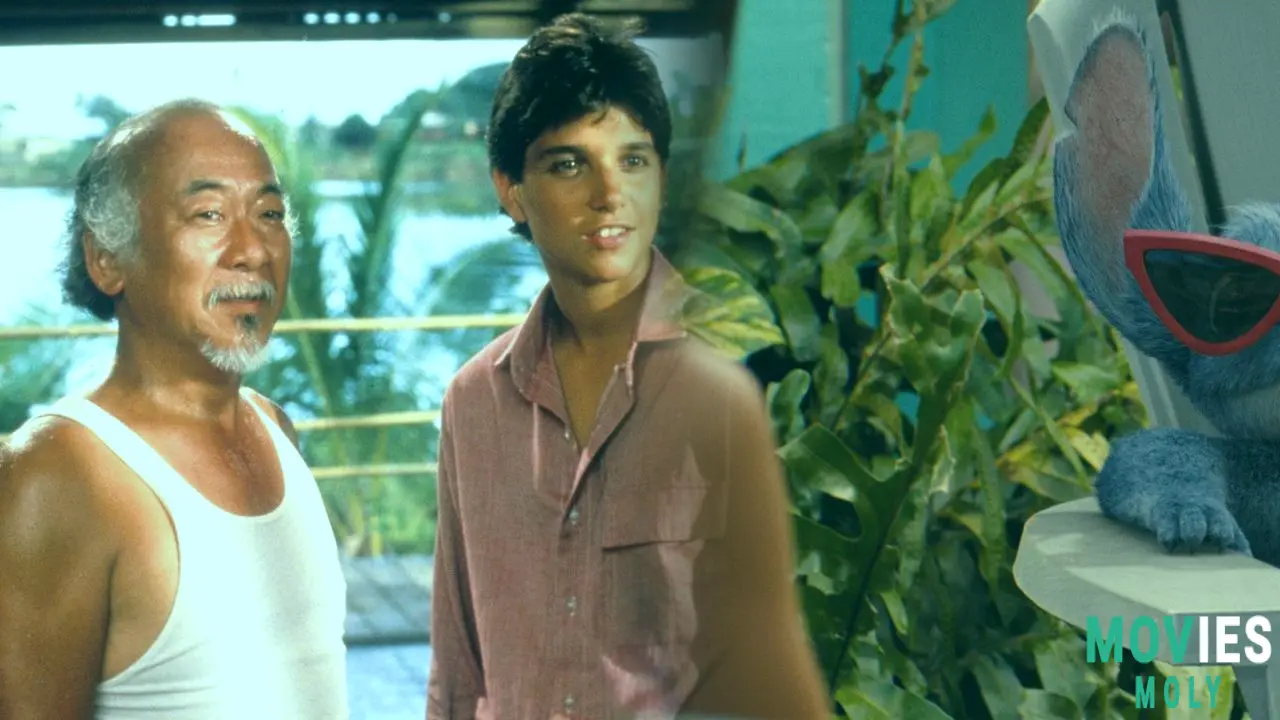
Behind The Scenes Details Of The Stars On Set And Their Enduring Impact On The Franchise
It is hard to put into words how much of a legend Jackie Chan is in action movies. Working with him was magical. That is the word director Jonathan Entwistle used. Chan was great at fight coordination. He also found humor in every small item around him. Entwistle said it was fantastic to watch him work. He watched Chan think about camera angles and what the audience wants to see. Chan was involved in all the fight sequences. He arrived on set for the alleyway fight with Ben Wang. He immediately started giving advice on how to do the moves. This showed the team that "now we’re cooking."
Chan himself said that people call him a "superstar" and a "legend." He feels thankful because it means all the years he risked his life for this work meant something. His physical skill made him a star in Hong Kong in the 1980s. He also had huge success in the US and Europe in the late 1990s and 2000s with movies like Rush Hour. Getting Chan for Legends is a big deal. It is his first live-action American blockbuster in 15 years. Director Entwistle likes to call him "martial-arts-film Santa Claus." Wang described him as a "mythological thing that children get giddy about." He turns the whole set into a Christmas wonderland of kicking a bunch of people.
Chan says he started adding humor to his films to move away from violent martial arts movies. He learned from his fans and the media that his movies were good but too violent. So he made the movements more like dancing. He added more comedy. This way, the audience could see action with comedy, making it less violent. At his peak, Chan could use his body in ways that seemed super human. He claimed in 2012 that he was stepping back from action movies to take care of his body. But 13 years later, he is still going. Chan said that Karate Kid: Legends is not too violent. He said fighting in this movie is like dancing. He also noted that if he has to jump off a building now, he needs a stunt double. But for normal fighting, he does it himself. He said it is easy for him to roll over and throw a couple of punches.
Ralph Macchio sits cheerfully beside Chan. He agrees that showing different cultures is good. He said martial arts is a way of life. It is not just about fighting. It is about self-esteem, discipline, and respect. For Chan, the film also has personal meaning. He said he was lucky to work with Macchio. When the original Karate Kid came out, Chan was young and felt depressed. He wanted to give up training as a stuntman. Then he saw Karate Kid. It brought his confidence back and he started training again. Now he works with Macchio. He said it is a dream come true.
The Action And Heart Of Karate Kid: Legends From Intense Choreography To Core Lessons
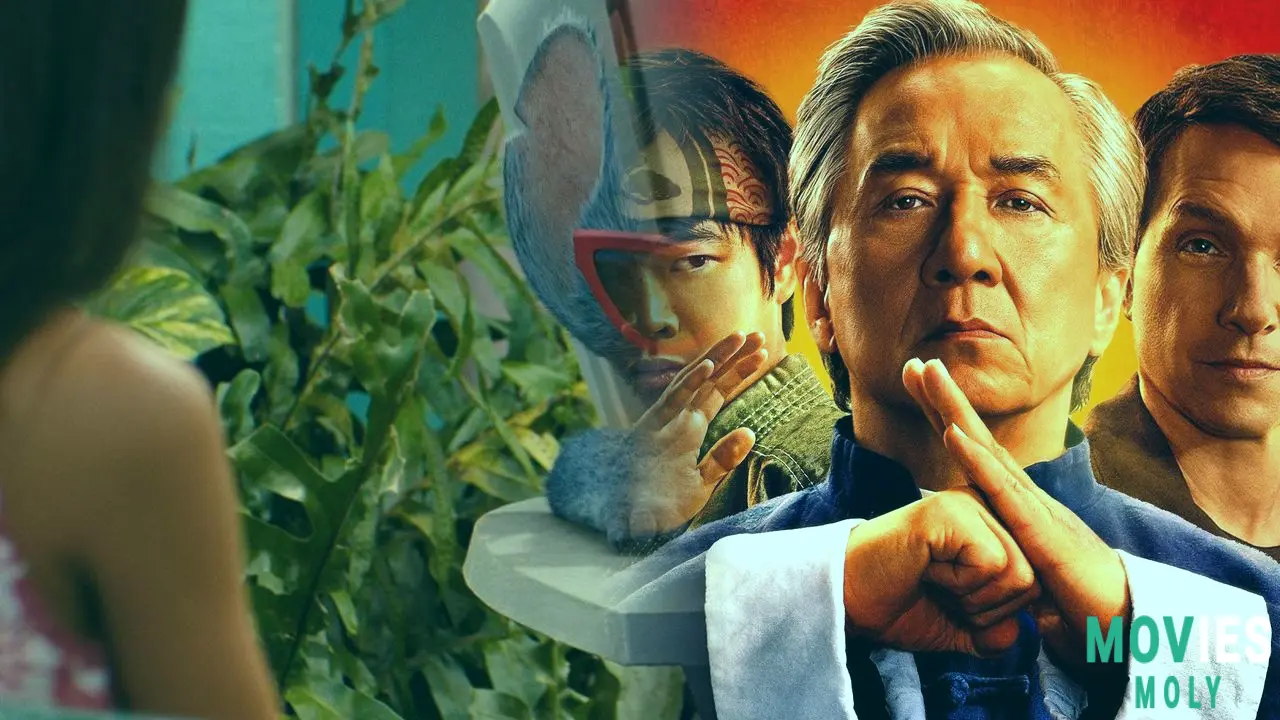
The Evolution Of Fight Sequences And The Enduring Power Of Training Montages
This is Jonathan Entwistle's first movie with lots of action and fighting. He thought about how musical songs punctuate movies and move the story forward. He also thought about anime. He worked with stunt coordinator Peng Zhang. Zhang helped him build the fights to a strong ending. The fights are meant to be real and fun. They use classic wire work from Hong Kong action movies. Entwistle wanted the fights to stand out. He said they did everything "in camera." This meant very little camera trickery or special effects. There is a lot of full contact in the movie. He hopes viewers can feel it. He even said there are some true knockouts in the movie where stunt guys were actually put out.
The movie even has a boxing story line. This allows Ben Wang’s Li Fong to teach Joshua Jackson’s character, Victor. It is a kind of reverse Karate Kid. This was exciting for the director to shoot. It showed another type of fighting within a martial arts film. It also showed that Li is not just teaching Victor moves. He is teaching him to believe in himself. He teaches him to pick himself back up. When life knocks you down, get back up. That is what Li teaches Victor to go back into the ring. The movie has many training montages. Entwistle believes a good training montage takes you somewhere. It helps you enjoy where you end up. The boxing montage helps you feel like you are in the ring with the characters. The rooftop training sequence with Jackie Chan and Ralph Macchio leads to a 12-minute ending with no talking, just martial arts.
The film's climax with its tournament has an anime feel. Entwistle said the energy and visuals come from anime. He aimed for a slightly heightened approach to the fights. He wanted the same stakes as anime, with a lot of heart. He said a huge influence for him was the movie Your Name. He wanted the sky in the finale to be like the sky in Your Name. He worked on it graphically to make it stand out in a real-life setting. He hopes younger anime audiences can feel this. This movie is packed with these elements. It is an interesting mix.
Why This Karate Kid Film Connects With Audiences And Its Place In The Franchise
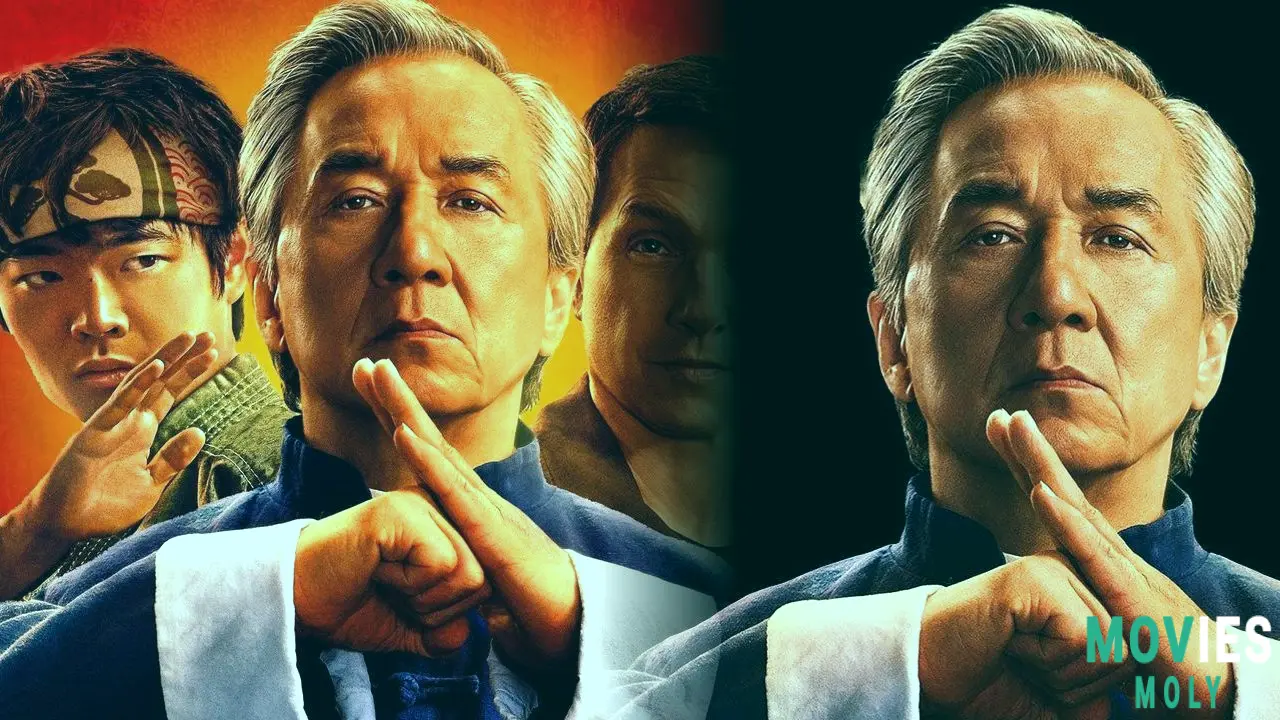
The Enduring Appeal Of A Story About Hard Work And Finding Great Mentors
In a world full of reboots and spin-offs, it is easy to feel tired of new movies. But Karate Kid: Legends aims to be different. It goes back to the basics of good action. Ben Wang said that the Karate Kid is not like Spider-Man or Superman. He is just a kid. He can be any kid. He achieves great things by working hard and having great mentors. This idea makes the film very relatable. It shows that anyone can overcome challenges with dedication and good guidance.
Wang also learned something from Jackie Chan. He said Chan showed him that you can always work harder. You can always care more. He said that however much you think you care about something, Jackie Chan cares more about making martial arts movies than that. This level of dedication is clearly visible in the film. It gives the movie a real heart and shows the passion behind its creation. The movie's early box office numbers, like earning $2.3 million from Thursday previews, show people were excited to see it. While critics rated it a bit lower than the 2010 film, audience scores were strong, especially with kids.
The Karate Kid franchise is 41 years old and has made over $620 million worldwide from its previous five movies. The 2010 version with Jackie Chan and Jaden Smith earned a large part of that. This new film costing $45 million to make shows a continued investment in the story. It is a new chapter that respects its past. It blends new elements with the beloved themes of hard work, discipline, and finding your strength. This latest movie proves that the Karate Kid story still has a strong kick. It will likely continue to inspire new generations.

